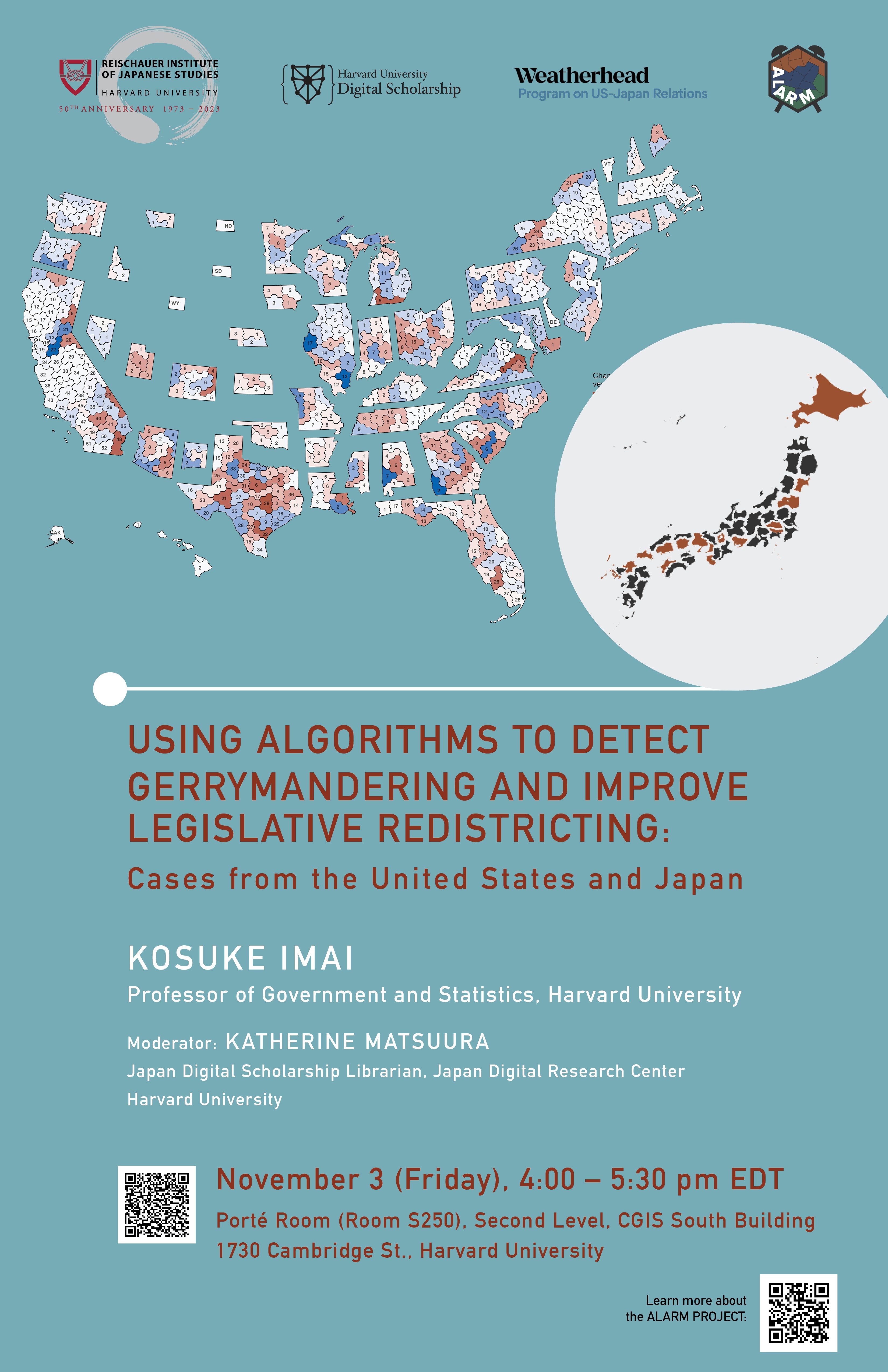Using Algorithms to Detect Gerrymandering and Improve Legislative Redistricting: Cases from the United States and Japan
In the United States, legislative redistricting, which redraws district boundaries after the decennial Census, plays a fundamental role in influencing who is elected and hence what policies are eventually enacted. Because the stakes are so high, redistricting has been subject to intense political battles. Political parties often engage in gerrymandering by manipulating district boundaries in order to amplify the voting power of some groups while diluting that of others. Drawing upon my research in examining redistricting court cases, this presentation will examine how algorithms, combined with granular data, can be used to detect gerrymandering. The talk will also demonstrate how these algorithms can be used in Japan to improve redistricting by reducing population deviation across districts.
Further details on The Algorithm-Assisted Redistricting Methodology (ALARM) Project
THIS EVENT TOOK PLACE IN ACADEMIC YEAR 2023-24
Reischauer Institute Japan Forum presentation co-sponsored by the HU Digital Scholarship Support Group, Weatherhead Center on US-Japan Relations, and ALARM Project
